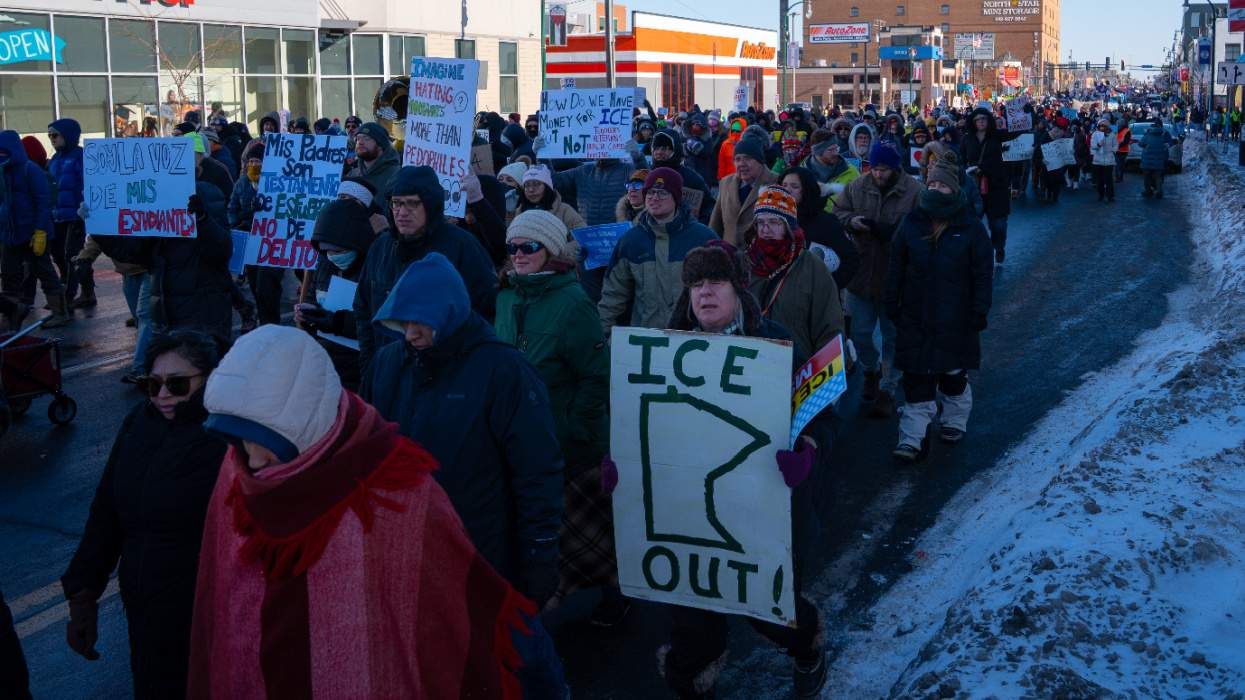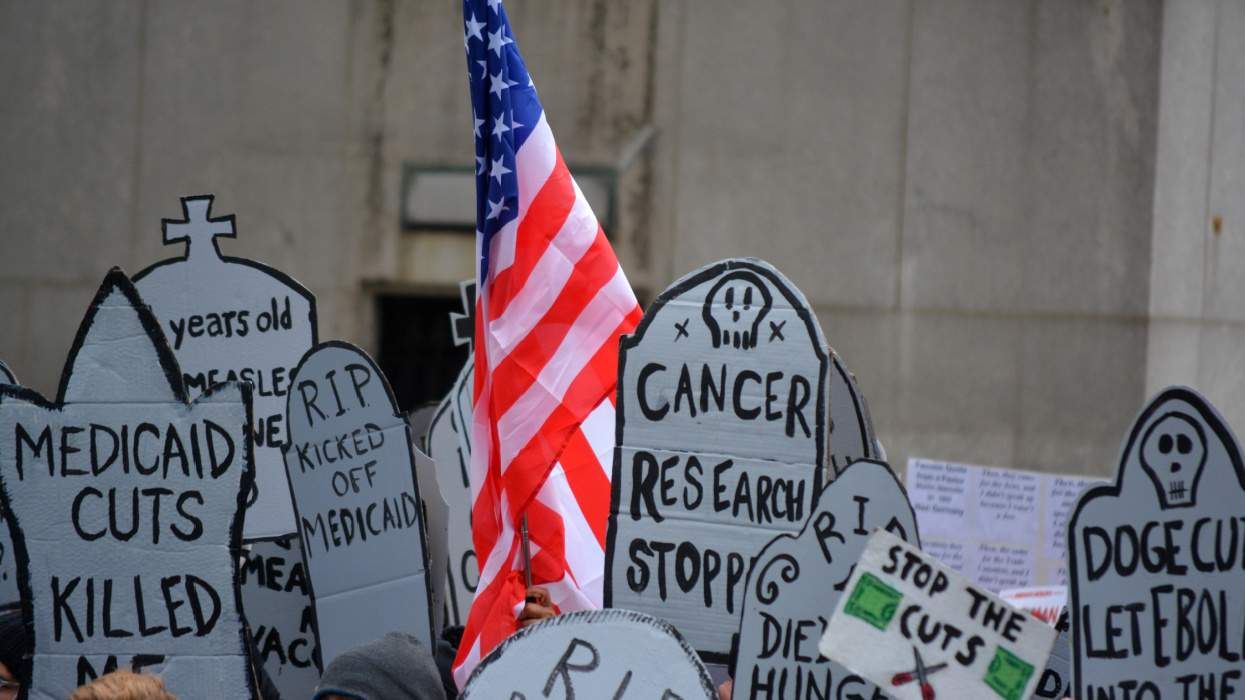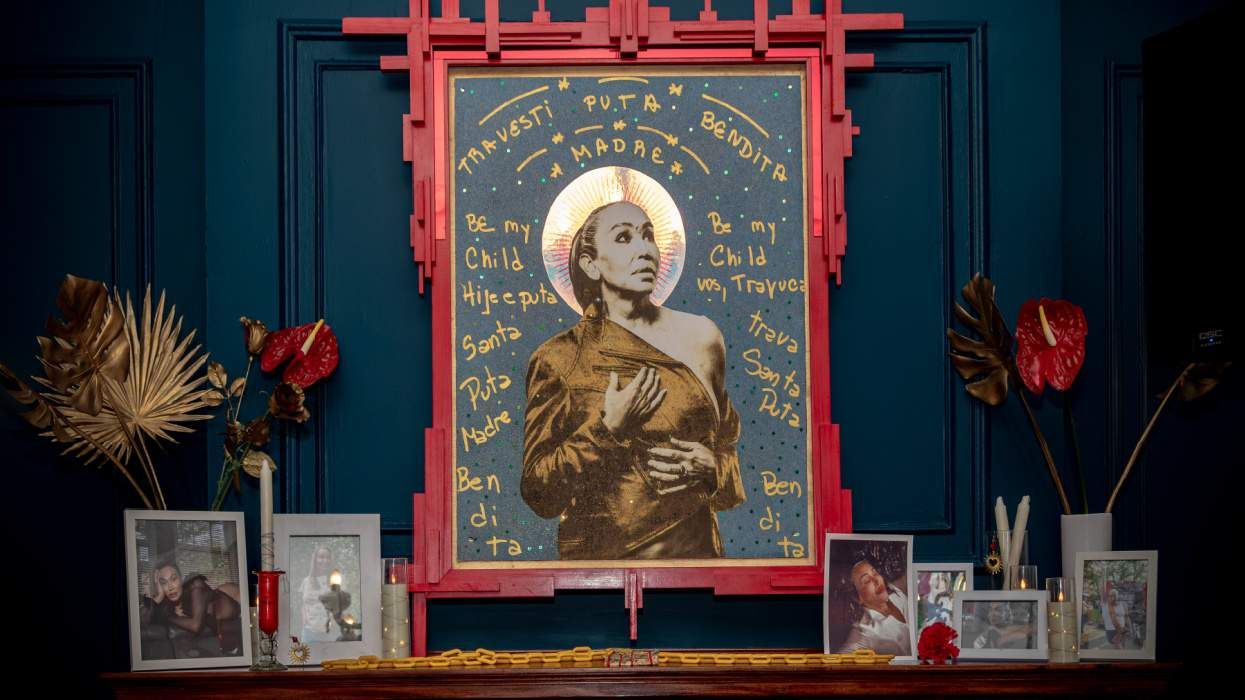Resistance and protesting is nothing new for the LGBTQ+ community or any marginalized community. It has been and continues to be necessary in order for us to live our lives as fully as anyone else. Because of this, our community, out of all communities, knows what it means for Black folks to fight against systemic oppression. Not only because we have experienced similar things by virtue of being LGBTQ+ but because we have Black queer and trans people among us who encounter this in their daily lives.
There have been widespread uprisings across the nation following the police killings of Black folks like George Floyd, Breonna Taylor, and Tony McDade among others, and the killing of Ahmaud Arbery, in which three white men have been charged. Groups have taken to the streets and demanded justice and change.
Here are five actions you can take right now to support.
1. Protest
Put most simply, what you can do is go out and get physically involved. While some protests are organized with permits like the 2017 Women's March and other actions, others (like in the case of the 2020 uprisings) spread via social media and word of mouth. Pay attention to announcements for when gatherings are set to occur and take your cue from those leading the action; do not escalate these environments. Allies can be most useful by taking their cues from those leading the action. If possible, leverage your privilege to protect them.
2. Help to Provide Supplies for Protests
Also, where possible, avoid filming or photographing the event. These are not photo opportunities or the time for creating content. Investigate the purposes behind why you want to post videos and photos to social media. And if you do, make sure to review the footage and photos beforehand and do what you can to minimize posting imagery that identifies those who are a part of the action. Identifying them could lead to their being targeted by others.
As in the case of drag performer and activist Marti Gould Cummings, you can also provide hands-on support. If you don't feel comfortable participating in the action in person, consider whether you can hand out water or provide supplies. As police have been deploying rubber bullets, pepper spray, mace, and excessive force, protesters are being injured. Arriving at protests with first aid kits and other supplies could provide much-needed assistance.
3. Donate Money to Help With Bail Funds
In addition to brutalizing mostly peaceful protesters, the authorities have begun to arrest them. For some, these detainments can lag on because of a lack of funds. To fight this, multiple bail funds around the nation take donations to pay these fees. If there aren't protests and arrests in your state, consider helping groups in other areas that need it, like the Minnesota Freedom Fund or the Brooklyn Community Bail Fund.
As a precaution, always look into the sources. Over the weekend people were passing around a link for a group purported to be collecting funds for bail in Washington, D.C. However, the District of Columbia doesn't have cash bail.
4. Donate Funds for Defense Lawyers
For protesters who have been charged, obtaining funds for bail is just the beginning of the process. If they end up in court, many of these protesters will need legal counsel.
5. Email, Text, and Call Officials
While retweeting and signal-boosting stories and footage from the front lines are invaluable, take that work a step further. Text, email, and call the governmental power players who can address these specific injustices that spurred protesters to take to the streets, like the Minneapolis mayor and district attorney, or the Louisville, Ky., mayor's office. When you see other injustices occur, research the local authorities and email, call, or text to demand action.















Charlie Kirk DID say stoning gay people was the 'perfect law' — and these other heinous quotes
These are some of his worst comments about LGBTQ+ people made by Charlie Kirk.